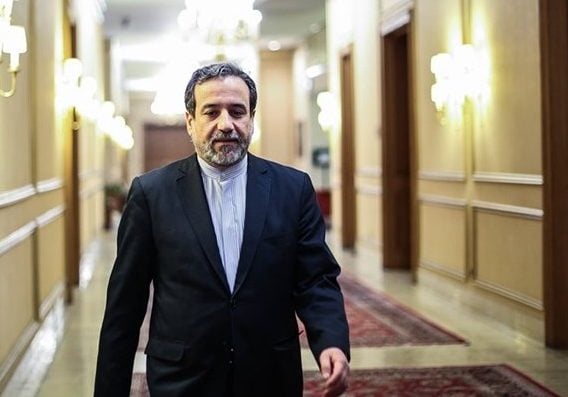In a report published on Saturday, Entekhab news website said the meeting, held in Tehran on January 8, was held at the request of French, British, German, Danish, Dutch, and Belgian diplomats who had refused to disclose the reason for the meeting.
According to Entekhab, the meeting goes awry after one of the European diplomats brought up a written statement to read it.
Araqchi, angry at the European envoys’ criticism of Iran’s missile activities and their terrorism allegations against Tehran, interrupted them and responded furiously.
“I thought you have come here to talk about your laxity regarding the JCPOA and terrorists who you have sheltered in Europe, and make apologies [for them],” the report quoted Araqchi as saying.
“The meeting is finished,” Araqchi said, followed with him walking out and slamming the door.
The report said the European diplomats, surprised by Araqchi’s behavior, asked other Iranian diplomats to receive the statement. But no one took it and they eventually left the Foreign Ministry.
Iran had refused to talk about the stormy meeting up until Saturday.
Last Monday, Foreign Ministry spokesman Bahram Qassemi had refused to provide details on the meeting.
Qassemi just said that Iran had announced it reserves the right to reciprocate the arrest of Iranian diplomats over terrorism charges and it will not leave such moves without a response.
Contradicting Narratives
The new details came shortly after Reuters published a report on the meeting, claiming the European officials had conveyed the message that Europe could no longer tolerate ballistic missile tests in Iran and “assassination plots” on European soil.
“There was a lot of drama, they didn’t like it, but we felt we had to convey our serious concerns,” one of the diplomats told Reuters.
The report, citing European envoys, said Araqchi’s move was an “extraordinary break with protocol.”
Quoting four EU diplomats, Reuters reported Europe was angry at Iran’s firing of short-range ballistic missiles into Syria on Sept. 30, missile tests, a satellite launch earlier this month and alleged assassination plots in France and Denmark last year.
The same day as the meeting, the Netherlands publicly blamed Iran for terror attacks on its soil in 2015 and 2017.
On Jan. 9, the EU designated a unit of Iran’s intelligence ministry as terrorist organisation, froze its assets and those of two men.
Iran has ruled out involvement in the alleged assassination plans, describing them as plots designed to damage Iran-Europe relations at a time when the US is pressuring Europe to toe its hardened line on Iran.
Europe Siding with US?
The new spat came months after the US withdrawal from the 2015 nuclear accord, which was followed by the return of anti-Iran sanctions suspended under the nuclear accord.
In recent months, the US has been working to hamper Iran’s foreign trade and pushing countries to cut down to zero their purchase of Iranian oil.
Iran has announced its continued fulfilment of nuclear deal obligations hinges on the EU compensating for the US withdrawal.
The EU has sought to show Iran that compliance with the nuclear accord would still mean economic benefits, vowing to create a special mechanism to protect trade with Iran.
However, Iran is lamenting Europeans have failed to bring into operation the mechanism by the end of 2018, the initial deadline.
A day after the January 8 meeting, the European Union imposed its first sanctions on Iran since world powers agreed the 2015 Vienna nuclear arms control deal with Tehran.
Reuters reported Europeans are preparing a set of new sanctions against Tehran, probably including asset freeze and travel banks on Iranian firms contributing to Iran’s missile program.
The agency quoted four European diplomats as saying that getting all 28 EU members to agree will take time.
